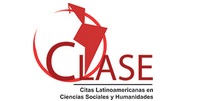Del aprendizaje a la automatización, implicaciones de la IA en la educación superior: revisión literaria
DOI:
https://doi.org/10.32870/dse.v0i34.1723Resumen
La educación ha experimentado una transformación significativa debido al uso de la Inteligencia Artificial en el ámbito académico, tanto para estudiantes, docentes y administrativos. En su mayoría, la integración de la IA ha traído beneficios, mejorando la personalización del aprendizaje y la eficiencia en la enseñanza. Sin embargo, también surgen desafíos y desventajas que deben ser considerados cuidadosamente para asegurar un proceso de enseñanza-aprendizaje efectivo. El objetivo de esta investigación es llevar a cabo una revisión sistemática y bibliométrica que responda a las preguntas de investigación planteadas y cumpla con los objetivos propuestos enfocados las implicaciones de la IA en la educación superior. Se identificaron 532 artículos relacionados con el tema, de los cuales se seleccionaron 55 para realizar la revisión literaria. Utilizando la metodología PRISMA para el cribado y la herramienta biblioshiny para el análisis estadístico. Los resultados muestran que existe una alta correlación entre los términos “educación”, “estudiantes” e “inteligencia artificial” en la literatura. No obstante, también se destaca la importancia de un uso adecuado de las herramientas de IA para evitar posibles consecuencias negativas. Es fundamental que tanto educadores como estudiantes aprovechen las ventajas de la IA con las implicaciones que supone su uso.
Descargas
Citas
Abdelaal, N.; I. Sawy (2024). Perceptions, challenges, and prospects: University professors’ use of artificial intelligence in education. Australian Journal of Applied Linguistics, 7(1), Article 1. https://doi.org/10.29140/ajal.v7n1.1309
Acosta-Enriquez, B.; M. Arbulú; O. Huamaní; C. López; K. Saavedra (2024). Analysis of college students’ attitudes toward the use of ChatGPT in their academic activities: Effect of intent to use, verification of information and responsible use. BMC Psychology, 12(1), 255. https://doi.org/10.1186/s40359-024-01764-z
Adeleye, O.; C. Eden; I. Adeniyi (2024). Innovative teaching methodologies in the era of artificial intelligence: A review of inclusive educational practices. World Journal of Advanced Engineering Technology and Sciences, 11(2), 069-079.
Almaiah, M.; R. Alfaisal; S. Salloum; F. Hajjej; S. Thabit; F. El-Qirem; A. Lutfi; M. Alrawad; A. Al Mulhem; T. Alkhdour; A. Awad; R. Al-Maroof (2022). Examining the Impact of Artificial Intelligence and Social and Computer Anxiety in E-Learning Settings: Students’ Perceptions at the University Level. Electronics, 11(22), Article 22. https://doi.org/10.3390/electronics11223662
Al-qiam, H.; R. AL-Derabseh; N. Alarifi; A. Shater; H. Al-Lawama; S. Darawsheh (2023). Artificial Intelligence and Its Relationship to Teaching School and University Mathematics in Jordan. International Journal of Membrane Science and Technology, 10(2), Article 2. https://doi.org/10.15379/ijmst.v10i2.2726
Al-Zahrani, A.; T. Alasmari (2024). Exploring the impact of artificial intelligence on higher education: The dynamics of ethical, social, and educational implications. Humanities and Social Sciences Communications, 11(1), 1-12.
Alzyoud, M.; N. Al-Shanableh; S. Alomar; A. As’adAlnaser; A. Mustafad; A. Al-Momani; S. Al-Hawary (2024). Artificial intelligence in Jordanian education: Assessing acceptance via perceived cybersecurity, novelty value, and perceived trust. International Journal of Data and Network Science, 8(2), 823-834. https://doi.org/10.5267/j.ijdns.2023.12.022
Aria, M.; C. Cuccurullo (2017). bibliometrix: An R-tool for comprehensive science mapping analysis. Journal of Informetrics, 11(4), 959-975. https://doi.org/10.1016/j.joi.2017.08.007
Asare, B.; Y. Arthur; B. Asare; Y. Arthur; F. Boateng (2023). Exploring the Impact of ChatGPT on Mathematics Performance: The Influential Role of Student Interest. https://doi.org/10.56578/esm010304
Atoi, N. (2024). Language and communication implication of artificial intelligence on selected Nigerian university undergraduates. UJAH: Unizik Journal of Arts and Humanities, 25(1), Article 1. https://doi.org/10.4314/ujah.v25i1.5
Bakr, R.; A. Zahou; A. AlShaer; I. Ahmed; W. Khalifa; S. Mabrouk; H. Wahab (2024). The Awareness Level of the Artificial Intelligence Applications’ Risk among Faculty Members and its Relation to the Attitude towards Digital Culture at Imam Abdulrahman bin Faisal University. Evolutionary Studies in Imaginative Culture, 1336-1359. https://doi.org/10.70082/esiculture.vi.1447
Bali, M.; M. Kumalasani; D. Yunilasari (2022). Artificial Intelligence in Higher Education: Perspicacity Relation between Educators and Students. Journal of Innovation in Educational and Cultural Research, 3(2), Article 2. https://doi.org/10.46843/jiecr.v3i2.88
Bensalem, E.; R. Harizi; A. Boujlida (2024). Exploring undergraduate students’ usage and perceptions of AI writing tools. Global Journal of Foreign Language Teaching, 14(2), Article 2. https://doi.org/10.18844/gjflt.v14i2.9344
Büyükk?d?k, S. (2022). A bibliometric analysis: A tutorial for the bibliometrix package in R using IRT literature. Journal of Measurement and Evaluation in Education and Psychology, 13(3), 164-193.
Cahyani, R.; O. Dewi; A. Darmawan (2023). AI AND CRITICAL READING SKILL AMONG UNIVERSITY STUDENTS (The impact of artificial intelligence (AI) on Al-Ghifari University Students’ critical reading skills). The GIST, 6(1), Article 1. https://doi.org/10.53675/gist.v6i1.1374
Crawford, J.; A. Kelly-Ann; B. Pani; M. Cowling (2024). When artificial intelligence substitutes humans in higher education: The cost of loneliness, student success, and retention. Studies in Higher Education, 49(5), 883-897. https://doi.org/10.1080/03075079.2024.2326956
Dabo, A.; A. Sarki; S. Fapohunda; E. Longe (2022). Impacts of Internet of Things (Iot) and 5G Network on Technology Enhanced Learning (Tel). Advances in Multidisciplinary and Scientific Research Journal Publication, 34, 175-192. https://doi.org/10.22624/AIMS/ACCRABESPOKE2022/V34P14
Duffett, R., Zaharia, R. M., Bucharest University of Economic Studies, Bucharest, Romania, Edu, T., Cape Peninsula University of Technology, Cape Town, South Africa, Romanian-American University, Bucharest, Romania, Constantinescu, R., Bucharest University of Economic Studies, Bucharest, Romania, Negricea, C., & Romanian-American University, Bucharest, Romania. (2024). Exploring the Antecedents of Artificial Intelligence Products Usage. The Case of Business Students. Amfiteatru Economic, 26(65), 106. https://doi.org/10.24818/EA/2024/65/106
Duran, V. (2024). Analyzing teacher candidates’ arguments on AI integration in education via different chatbots. Digital Education Review, 45, Article 45. https://doi.org/10.1344/der.2024.45.68-83
Erbas, I.; E. Maksuti (2024). The Impact of Artificial Intelligence on Education. International Journal of Innovative Research in Multidisciplinary Education, 03(04). https://doi.org/10.58806/ijirme.2024.v3i4n01
Goli-Cruz, M. (2023). Perceptions of Higher Education Faculty Regarding the Use of Chat Generative Pre-Trained Transformer (ChatGPT) in Education. International Journal on Open and Distance E-Learning, 9(2), Article 2. https://doi.org/10.58887/ijodel.v9i2.249
Hu, J. (2021). Teaching Evaluation System by use of Machine Learning and Artificial Intelligence Methods. International Journal of Emerging Technologies in Learning (IJET), 16(05), Article 05. https://doi.org/10.3991/ijet.v16i05.20299
Huang, L. (2022). The Establishment of College Student Employment Guidance System Integrating Artificial Intelligence and Civic Education. Mathematical Problems in Engineering, 2022(1), 3934381. https://doi.org/10.1155/2022/3934381
Jaiswal, A.; B. Prince; V. Joshi (2024, junio 23). Assessing the Motivation and Emotion Levels of First-Year Engineering Students Enrolled in an Academic Writing Course. 2024 ASEE Annual Conference & Exposition. https://peer.asee.org/assessing-the-motivation-and-emotion-levels-of-first-year-engineering-students-enrolled-in-an-academic-writing-course
Jia, X.-H.; J.-C. Tu (2024). Towards a New Conceptual Model of AI-Enhanced Learning for College Students: The Roles of Artificial Intelligence Capabilities, General Self-Efficacy, Learning Motivation, and Critical Thinking Awareness. Systems, 12(3), Article 3. https://doi.org/10.3390/systems12030074
Kamalov, F.; D. Santandreu; I. Gurrib (2023). New Era of Artificial Intelligence in Education: Towards a Sustainable Multifaceted Revolution. Sustainability, 15(16), Article 16. https://doi.org/10.3390/su151612451
Karroum, S.; N. Elshaiekh; K. Al-Hijji (2024). Exploring the Role of Artificial Intelligence in Education: Assessing Advantages and Disadvantages for Learning Outcomes and Pedagogical Practices. IJIRMPS–International Journal of Innovative Research in Engineering & Multidisciplinary Physical Sciences, 12(4). https://doi.org/10.37082/IJIRMPS.v12.i4.231000
Katsantonis, A.; I. Katsantonis (2024). University Students’ Attitudes toward Artificial Intelligence: An Exploratory Study of the Cognitive, Emotional, and Behavioural Dimensions of AI Attitudes. Education Sciences, 14(9), Article 9. https://doi.org/10.3390/educsci14090988
Kele?, P.; S. Ayd?n (2021). University Students’ Perceptions About Artificial Intelligence. Shanlax International Journal of Education, 9(S1-May), Article S1-May. https://doi.org/10.34293/education.v9iS1-May.4014
Korteling, J.; G. van de Boer-Visschedijk; R. Blankendaal; R. Boonekamp; A. Eikelboom (2021). Human-versus artificial intelligence. Frontiers in artificial intelligence, 4, 622364.
Kulikov, S.; A. Shirokova (2021). Artificial intelligence, culture and education. AI & SOCIETY, 36(1), 305-318. https://doi.org/10.1007/s00146-020-01026-7
Assessing Technology Readiness and Acceptance for Adopting Large Language Models in Higher Education. European Conference on E-Learning, 22(1), Article 1. https://doi.org/10.34190/ecel.22.1.1828
Leoste, J.; L. Jõgi; T. Õun; L. Pastor; J. San Martín; I. Grauberg (2021). Perceptions about the Future of Integrating Emerging Technologies into Higher Education—The Case of Robotics with Artificial Intelligence. Computers, 10(9), Article 9. https://doi.org/10.3390/computers10090110
Manukyan, Z. (2024). Opportunities for Using Artificial Intelligence in the Higher Education System (in the field of international relations). Journal of Digital Economy Research, 1(4), Article 4. https://doi.org/10.24833/14511791-2023-4-85-101
Matos, F.; F. Contreras; J. Olaya (2023). Introducción a la bibliometría práctica. https://repositorioinstitucional.buap.mx/items/3b938e8b-d67e-42d1-a56c-c8948faef285
Merzifonluoglu, A.; H. Gunes (2025). Shifting Dynamics: Who Holds the Reins in Decision-Making with Artificial Intelligence Tools? Perspectives of Gen Z Pre-Service Teachers. European Journal of Education, 60(1), e70053. https://doi.org/10.1111/ejed.70053
Methley, A.; S. Campbell; C. Chew-Graham; R. McNally; S. Cheraghi-Sohi (2014). PICO, PICOS and SPIDER: A comparison study of specificity and sensitivity in three search tools for qualitative systematic reviews. BMC Health Services Research, 14(1), 579. https://doi.org/10.1186/s12913-014-0579-0
Mohammad Al-Othman, A. (2024). Using Artificial Intelligence in English As a Foreign Language Classrooms: Ethical Concerns and Future Prospects–AWEJ. https://awej.org/using-artificial-intelligence-in-english-as-a-foreign-language-classrooms-ethical-concerns-and-future-prospects/
Morales-García, W.; L. Sairitupa-Sanchez; S. Morales-García; M. Morales-García (2024). Development and validation of a scale for dependence on artificial intelligence in university students. Frontiers in Education, 9, 1323898. https://www.frontiersin.org/articles/10.3389/feduc.2024.1323898/full
Morales-Romero, G.; A. Quispe-Andía; N. Trinidad-Loli; V. Durán-Herrera; C. Nieves-Barreto; R. Suarez-Bazalar; M. Harcaya-Godoy; Y. Cruz-Telada; J. Caller-Luna; O. Chamorro-Atalaya (2023). Formative Research Developing Applications with Augmented Reality: A Case Study of Attitude Assessment in University Students. International Journal of Learning, Teaching and Educational Research, 22(9), Article 9. https://ijlter.org/index.php/ijlter/article/view/8447
Norabuena-Figueroa, R.; A. Deroncele-Acosta; H. Rodríguez-Orellana; E. Norabuena-Figueroa; M. Flores-Chinte; L. Huamán-Romero; V. Tarazona-Miranda; M. Mollo-Flores (2025). Digital Teaching Practices and Student Academic Stress in the Era of Digitalization in Higher Education. Applied Sciences, 15(3), Article 3. https://doi.org/10.3390/app15031487
Nugroho, L.; E. Wuryani (2023). Exploring Public Perceptions of ChatGPT in Education through Netnography and Social Media Analysis. Gagasan Pendidikan Indonesia, 4(2), 66-75. https://doi.org/10.30870/gpi.v4i2.23164
Ortega-Rodriguez, P.; F. Pericacho (2025). (PDF) La utilidad didáctica percibida del ChatGPT por parte del alumnado universitario. ResearchGate. https://doi.org/10.12795/pixelbit.109778
Pisica, A.; T. Edu; R. Zaharia; R. Zaharia (2023). Implementing Artificial Intelligence in Higher Education: Pros and Cons from the Perspectives of Academics. Societies, 13(5), Article 5. https://doi.org/10.3390/soc13050118
Priem, J.; H. Piwowar; R. Orr (2022). OpenAlex: A fully-open index of scholarly works, authors, venues, institutions, and concepts (arXiv:2205.01833). arXiv. https://doi.org/10.48550/arXiv.2205.01833
Puche-Villalobos, D. (2024). Inteligencia artificial como herramienta educativa: Ventajas y desventajas desde la perspectiva docente. Areté, Revista Digital del Doctorado en Educación, 10(ee), Article ee.
Quinde, G.; M. Muñoz; J. Suárez; R. Villarreal; W. Vélez; A. Laínez (2024). Perception of University Students on The Use of Artificial Intelligence (AI) Tools for the Development of Autonomous Learning. Revista de Gestão Social e Ambiental, 18(2), e06170-e06170. https://doi.org/10.24857/rgsa.v18n2-136
Rashmi, K.; A. Kataria (2022). Work–life balance: A systematic literature review and bibliometric analysis. International Journal of Sociology and Social Policy, 42(11/12), 1028-1065.
Rojas-Sánchez, M.; P. Palos-Sánchez; J. Folgado-Fernández (2023). Systematic literature review and bibliometric analysis on virtual reality and education. Education and Information Technologies, 28(1), 155-192. https://doi.org/10.1007/s10639-022-11167-5
Saklaki, A.; A. Gardikiotis (2024). Exploring Greek Students’ Attitudes Toward Artificial Intelligence: Relationships with AI Ethics, Media, and Digital Literacy. Societies, 14(12), Article 12. https://doi.org/10.3390/soc14120248
Sari, D.; R. Yudhanto (2025). Analysis the Impact of ChatGPT Usage on Student Learning Productivity in Surakarta City: Pedagogia: Jurnal Pendidikan, 14(1), Article 1. https://doi.org/10.21070/pedagogia.v14i1.1843
Sava?kan, V. (2024). Turkish Language Prospective Teachers’ Perceptions of Metaphors Regarding Artificial Intelligence. Shanlax International Journal of Education, 12(S1-June), Article S1-June. https://doi.org/10.34293/education.v12iS1-June.7761
Sevnarayan, K.; M. Potter (2024). Generative Artificial Intelligence in distance education: Transformations, challenges, and impact on academic integrity and student voice. Journal of Applied Learning and Teaching, 7(1), Article 1. https://doi.org/10.37074/jalt.2024.7.1.41
Stoyanova, D.; S. Stoyanova-Petrova; N. Mileva (2025). Exploring Students’ and Teachers’ Perceptions about Using ChatGPT in Programming Education. International Journal of Engineering Pedagogy (IJEP), 15(2), Article 2. https://doi.org/10.3991/ijep.v15i2.50607
Suarda, I.; F. Setyawan; G. Putra; V. Taniady; N. Putri (2024). Artificial intelligence and new era of plagiarism in education: Problem and solution. Journal of Infrastructure, Policy and Development, 8(14), Article 14. https://doi.org/10.24294/jipd9609
Sun, Z.; M. Anbarasan; D. Praveen (2021). Design of online intelligent English teaching platform based on artificial intelligence techniques. Computational Intelligence, 37(3), 1166-1180. https://doi.org/10.1111/coin.12351
Tedre, M.; T. Toivonen; J. Kahila; H. Vartiainen; T. Valtonen; I. Jormanainen; A. Pears (2021). Teaching machine learning in K–12 classroom: Pedagogical and technological trajectories for artificial intelligence education. IEEE access, 9, 110558-110572.
Telaumbanua, Y.; N. Hulu; A. Zai; D. Hulu; E. Ndruru (2024). Utilizing AI (Artificial Intelligence) to Have Positive Impacts on Students in Learning English. Jurnal Simki Pedagogia, 7(2), Article 2. https://doi.org/10.29407/jsp.v7i2.746
Tennakoon, S.; U. Udayantha; W. Wattegama, (2025). Waste Management Research in Sri Lanka: Exploring Trends, Identifying Gaps, and Gaining Key Insights Through Bibliometric Analysis. Management Dynamics in the Knowledge Economy, 13(1), 20-37. https://doi.org/10.2478/mdke-2025-0002
Thuan, P.; N. Hanh (2025). Students’ perspectives on application of AI-powered technology in learning English pronunciation: A case of reading progress. International Journal of Evaluation and Research in Education (IJERE), 14(1), Article 1. https://doi.org/10.11591/ijere.v14i1.31381
Torres-Gómez, A. (2024). Necesidades de información y percepción sobre las herramientas de inteligencia artificial en estudiantes de doctorado en investigación educativa en Tlaxcala, México. Investigación Bibliotecológica: archivonomía, bibliotecología e información, 38(98), Article 98. https://doi.org/10.22201/iibi.24488321xe.2024.98.58852
Tran, T.; M. Bakajic; M. Pullman (2024). Teacher’s pet or rebel? Practitioners’ perspectives on the impacts of ChatGPT on course design. Higher Education. https://doi.org/10.1007/s10734-024-01350-7
Tsiara, A.; V. Bakalis; A. Toska; S. Zyga; J. Stathoulis; E. Albani; M. Saridi; C. Togas; M. Agraniotis; E. Fradelos; A. Tsiara; V. Bakalis; A. Toska; S. Zyga; J. Stathoulis; E. Albani; M. Saridi; C. Togas; M. Agraniotis; E. Fradelos (2025). The Role of Personality Traits in Nursing Students’ Attitudes Toward Artificial Intelligence. Cureus, 17(2). https://doi.org/10.7759/cureus.78847
Ugli, A. (2025). Understanding Uzbekistan University EFL Teachers’ Perceptions of ChatGPT: From Benefits to Ethical Challenges. International Journal of Information and Education Technology, 15(2), 246-254. https://doi.org/10.18178/ijiet.2025.15.2.2238
Ventura, A. (2024). Unlocking the Future of Learning: Assessing Students’ Awareness and Usage of AI Tools. International Journal of Information and Education Technology, 14(8), 1136-1144. https://doi.org/10.18178/ijiet.2024.14.8.2142
Whitbread, M.; C. Hayes; S. Prabhakar; R. Upsher (2025). Exploring University Staff’s Perceptions of Using Generative Artificial Intelligence at University. Education Sciences, 15(3), Article 3. https://doi.org/10.3390/educsci15030367
Wilkinson, C.; M. Oppert; M. Owen (2024). Investigating academics’ attitudes towards ChatGPT: A qualitative study. Australasian Journal of Educational Technology, 40(4), Article 4. https://doi.org/10.14742/ajet.9456
Yerlikaya, N.; Ö. Küçükaslan (2024). Views of veterinary faculty students on the concept of Artificial Intelligence and its use in Veterinary Medicine practices: An example of Ankara University Faculty of Veterinary Medicine. Ankara Üniversitesi Veteriner Fakültesi Dergisi, 71(3), Article 3. https://doi.org/10.33988/auvfd.1221352
Zhang, S.; X. Zhao; T. Zhou; J. Kim (2024). Do you have AI dependency? The roles of academic self-efficacy, academic stress, and performance expectations on problematic AI usage behavior. International Journal of Educational Technology in Higher Education, 21(1), 34. https://doi.org/10.1186/s41239-024-00467-0
Zhu, J. (2024). Innovative Exploration of the Integration Path of Artificial Intelligence Ethics and College Students’ Ideological and Political Education. Applied Mathematics and Nonlinear Sciences, 9(1). https://doi.org/10.2478/amns-2024-2280
Descargas
Publicado
Número
Sección
Licencia
Derechos de autor 2025 Universidad de Guadalajara

Esta obra está bajo una licencia internacional Creative Commons Atribución-NoComercial 4.0.
Esta obra está bajo una licencia internacional Creative Commons Atribución-NoComercial 4.0.
Una vez que los manuscritos son aceptados por los evaluadores para ser publicados, los autores deberán de suscribir una carta de cesión de derechos en favor de la Universidad de Guadalajara para la edición, publicación y difusión de su obra. Ya que sea notificada la publicación de su manuscrito, el editor de la revista le enviará un correo electrónico con el formato de la carta de cesión de derechos.















